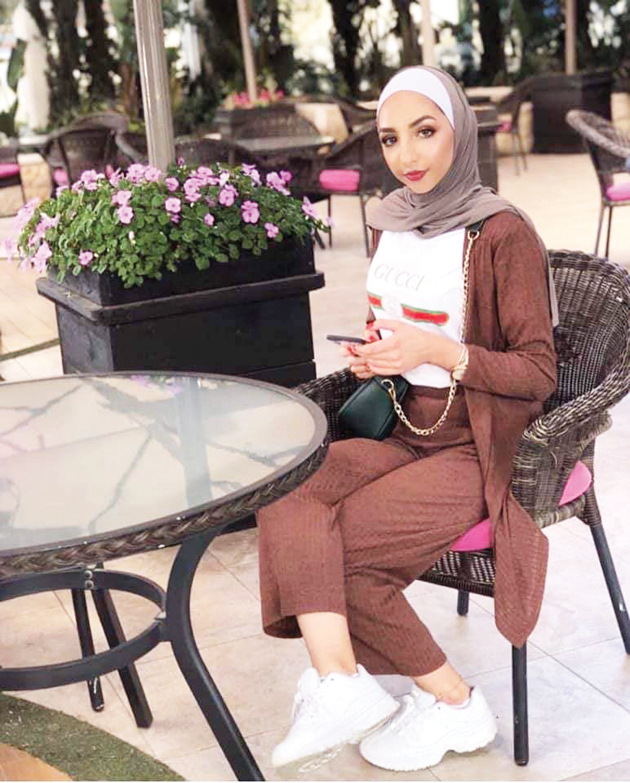ABU DHABI/GAZA CITY: The death of a young Palestinian woman in the West Bank has sparked widespread outrage across the Middle East amid accusations that it is nothing but another case of so-called honor killing.
The suspicious circumstances of 21-year-old Israa Ghareeb’s death in Bethlehem have also drawn attention to a practice increasingly seen as a stain on the conscience of Middle East societies.
The Ghareeb family has rejected the accusations. However, social media posts by Israa’s friends hinted at a connection between her death and a meeting she had with her fiance in the presence of a chaperone.
Those posts said a video of the meeting had been posted on a social-media platform and forwarded by a relative to the male members of her family. According to the posts, the clip angered the father and brothers, who felt the scenes of Israa with her fiance before the official wedding had taken place dishonored the family.
Subsequently, Israa was physically assaulted in the Ghareeb family home, the posts said. They added that due to the severe spinal injuries she sustained she had to be admitted to the Arab Society Hospital in Bethlehem.
From the hospital, Israa posted a selfie showing her bruised body on her Instagram account, with the message: “I am better now. Alhamdulillah.”
Later, according to the BBC, an audio recording of a young woman being violently tortured went viral on social media, although it could not be independently confirmed whether the voice was that of Israa.
Soon afterwards, #WeAreAllIsraa began to trend on Arabic Twitter, with more than 50,000 tweets displaying the hashtag.
While the precise circumstances of Israa’s death remain unclear, social media posts claim she died in her home just days after allegedly being assaulted in hospital in what amounted to a case of honor killing.
Despite the adoption of tough laws, awareness campaigns and global opprobrium, suspected honor killings — crimes committed against women who are seen as having transgressed social codes of honor — occur in Palestinian as well as the wider Arab society with tragic regularity.
If Israa’s death is confirmed as an honor killing, it would be the 19th case in Palestine in 2019, according to Palestinian NGOs Against Domestic Violence Against Women. Palestinian police data for 2018 show honor killings accounting for 12 percent of total homicide cases.
In the age of social media and gender equality honor killing, once hidden behind a curtain of silence, is generating condemnation of its perpetrators, public support for its victims and pledges to stamp it out.
Even so, honor killings are a major problem in several Middle East and North African countries.

Social media has been flooded with solidarity messages and calls for justice for Israa Ghareeb.
Many of these crimes are believed to go unreported as they are committed by a close relative of the victim, and only a few are made public. Though several countries have taken legislative action to end the practice, much remains to be done in societies where numerically significant minorities continue to justify violence against women.
Women’s rights activists in the region say legal loopholes that are still available for those who commit honor crimes are perpetuating the practice.
Nahed Abu Tuaima, coordinator of the gender studies program at Birzeit University in the West Bank, says there is no denying the persistence of violence against women within Palestinian families.
“This violence is mainly caused by the lack of strict laws in Palestine, and the fact that Palestinian law allows a reduction in the punishment for those who kill women if the crime falls within so-called honor killing,” she told Arab News.
She noted that the public prosecution did not take action on Israa’s case until it became a public issue, especially on social media.
FASTFACT
12 - Honor killings as a percentage of all homicides in Palestine in 2018
“The health authorities did not handle the Israa case properly, and the police were not informed that there was an attack against her,” she said.
Abu Tuaima says the legal environment is outdated and is not suitable for protecting women in Palestine. “There is interest from the Palestinian government in unimportant laws but laws that protect women are not amended,” she said.
At the same time, Palestinian feminist institutions are weak and incapable of producing an effective framework for change. “They always use the same tools and do not seek new tools to pressure decision makers,” Abu Tuaima said.
For instance, she said, “we are negotiating with the government to pass a law limiting early marriage, but we are unable to get it implemented.”
In 2014 a legal consultant for the Palestinian human rights organization Al Haq reckoned that 90 percent of such crimes were committed for reasons other than “dishonoring” the family.
The knowledge that courts are more lenient when sexual misconduct is cited as a motive often results in an atmosphere of sympathy for the assailant and his family, leading to a lighter verdict.

Israa Ghareeb
The issue of honor killings in Palestine has been further complicated by politics, with efforts by the West Bank authorities to criminalize the offense not matched by their Hamas counterparts in the Gaza Strip.
It is not Palestine, though, but neighboring Jordan that is viewed as the most troubling case in point. Human Rights Watch estimates that 15 to 20 women and girls in Jordan are burned, beaten, or stabbed to death every year by family members because they are seen as having transgressed social codes of honor.
The Sisterhood Is Global Institute (SIGI) reckons that at least 42 women were murdered by their relatives in 2016 in that country, which was 60 percent higher than the 2015 figure, giving Jordan the dubious honor of having one of the highest rates of honor killings in the world.
In recent years, Jordan’s parliament has sought to improve women’s rights and provide alternatives that would decrease killings in the name of honor, but clearly bold steps are needed to tackle what is by all accounts a deep-seated problem.
On a regional level, though, progress is being made — not only towards ending discrimination and prevention of unjustified crimes against women but also bringing about a society-wide mindset shift. The World Economic Forum 2016 Global Gender Gap Report ranked the UAE as a leading country in terms of gender equality. In 2015, the UAE established the Gender Balance Council, a federal entity that enhances and increases women’s role in leadership positions.
The UAE Women Leadership Program provides training for Emirati women that is seen as a reflection of a drive to forge a gender-equal society. The UAE is also the first country in the region to require every government organization and every company to have female board members.
Along similar lines, Saudi Arabia has made rapid strides in women’s empowerment, the latest being the country’s new law that loosens restrictions on women by allowing all citizens, both men and women, to travel freely. The law has ended a long-standing guardianship policy that had controlled women’s freedom of movement.
Other recently introduced changes in rules allow women to register a marriage, divorce or a child’s birth, and obtain official family documents, in addition to women being allowed legal guardianship of their children, a right previously held only by men.
Against this backdrop, Israa’s death has the potential to spark an important debate on the legal and ethical aspects of honor killings, which are regrettably still an acceptable custom in some parts of the Middle East.
Empowerment is key to tackling the status of women in Middle East society. But raising awareness, changing legal codes, providing alternatives and educating people are equally important steps so that young women do not have to experience the violence that Israa Ghareeb allegedly suffered.



























